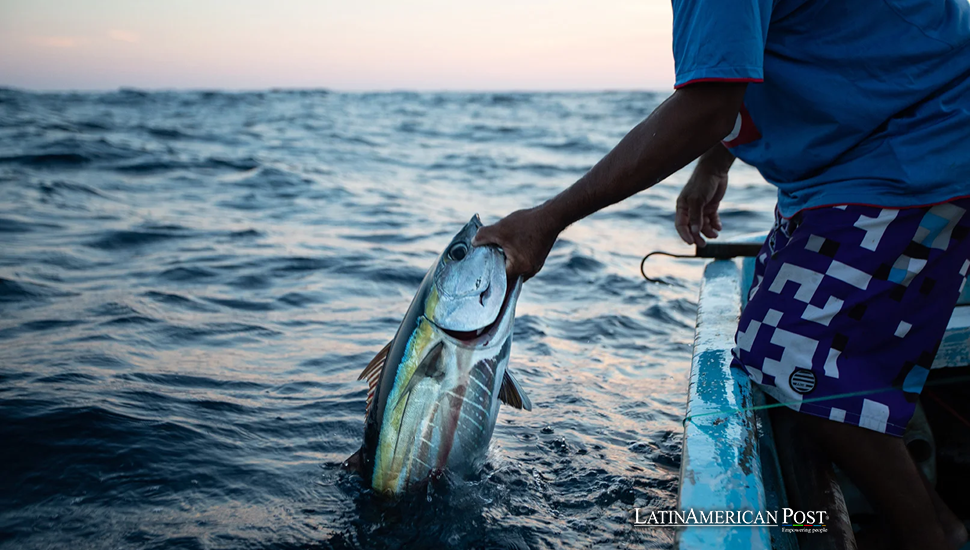Cartels Exploit Fishing Industry in the Gulf of Mexico

A recent U.S. Treasury investigation has exposed the Gulf cartel’s illegal fishing operations in the Gulf of Mexico, revealing how Mexican drug cartels are exploiting marine resources like red snapper to fuel a lucrative, cross-border black market.
Illegal Fishing and the Gulf Cartel Connection
U.S. authorities and fishermen have been sounding the alarm about the illegal fishing for red snapper in the Gulf of Mexico for years. Now, a U.S. Treasury Department announcement has finally revealed the culprits: the Gulf cartel, one of Mexico’s most notorious drug-trafficking organizations. The urgency of the situation cannot be overstated.
The Gulf cartel operates in Reynosa and Matamoros, border cities adjacent to Texas. While it may seem unusual for a cartel to venture into commercial fishing, the connection makes sense for an organization that thrives on smuggling and profit. According to the Treasury, cartel members use fishing boats—known as lanchas—to smuggle drugs and migrants while also poaching tons of red snapper and shark species from U.S. waters.
“These launches are not just vessels for smuggling; they are a direct threat to marine ecosystems and legitimate industries,” the Treasury Department stated. Much of this illegal activity originates from Playa Bagdad, a coastal town near Matamoros. The red snapper and other fish are sold in Mexican cities near the border. These fish sometimes end up in Texas for resale. This practice disrupts U.S. fishing rules. Conservation efforts in the U.S. also suffer.
A Devastating Impact on Marine Life and Fisheries
Illegal fishing activities not only harm marine ecosystems but also have a devastating impact on marine life. Red snapper, with its high commercial value, is a prime target. Strict seasonal limits exist in U.S. waters to keep its population sustainable, but the cartel ignores these rules with its careless fishing methods. It employs banned long lines and nets, leading to the accidental catch of red snapper and other marine animals like sharks. These actions are not just destructive, they are a threat to the biodiversity of the Gulf of Mexico.
According to NOAA (National Oceanic and Atmospheric Administration), Mexican boats have repeatedly violated U.S. fishing laws, with the U.S. Coast Guard apprehending dozens of vessels since 2014. Despite these efforts, the illegal activity persists, and in 2022, NOAA banned Mexican fishing vessels from entering U.S. ports, citing the Mexican government’s failure to address the issue.
The problem isn’t limited to red snapper. Similar illegal practices in the Gulf of California have endangered the totoaba fish and the world’s most vulnerable marine mammal, the vaquita marina. These examples underscore the broader environmental risks posed by cartels exploiting natural resources for profit.
Economic and Legal Consequences
The financial scale of the cartel’s illegal fishing operations is massive, but the impact on U.S. fishermen is very personal. While they adhere to stringent regulations to protect fish populations, the Gulf cartel undermines these efforts, reaping profits from poached seafood often resold in the United States. This personal impact cannot be ignored.
The Treasury’s announcement detailed sanctions against five Gulf cartel members involved in the illegal fishing scheme, including regional leaders like Ildelfonso Carrillo Sapien (“El Chivo”) and Raul Decuir Garcia (“La Burra”). These individuals control lancha operations out of Playa Bagdad, using fishing camps as hubs for trafficking and poaching.
The sanctions prevent individuals from using their U.S. assets and make financial transactions in the U.S. economy impossible for them. These actions try to disturb the cartel’s activities. However, holding people accountable across countries proves difficult.
A Broader Pattern of Criminal Diversification
The Gulf cartel’s foray into illegal fishing reflects a broader trend among Mexican drug cartels diversifying their criminal portfolios. In recent months, U.S. authorities have imposed sanctions on cartels for activities ranging from fuel theft to timeshare fraud and human smuggling.
For example, in October, the U.S. sanctioned leaders of a cartel-linked armed group operating in Chihuahua, Mexico. In September, a figure known as “The Tank” was sanctioned for running a fuel theft operation tied to the Jalisco New Generation Cartel (CJNG). Other recent cases include a timeshare fraud ring run by CJNG and fentanyl trafficking networks linked to La Nueva Familia Michoacana.
This pattern highlights the adaptability of cartels, which exploit any lucrative opportunity, including natural resources. They explore industries such as fishing. They use their smuggling networks for new sources of income.
Also read : Black Friday in Latin America: Unlocking Consumer Insights
The Gulf cartel secretly fishes in the Gulf of Mexico, blending environmental crime with organized crime. U.S. authorities are working harder to stop this problem. The situation highlights the need for cooperation between countries. This teamwork tackles conservation issues and weakens cartel power.





